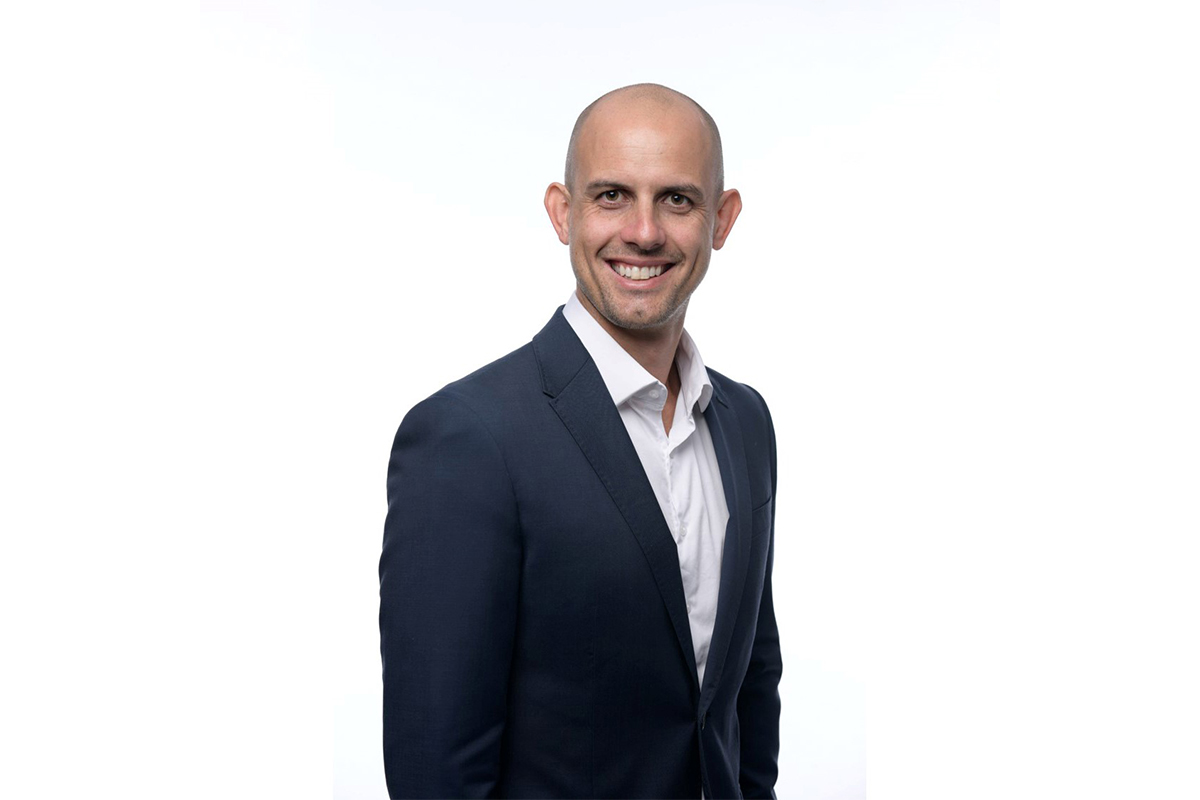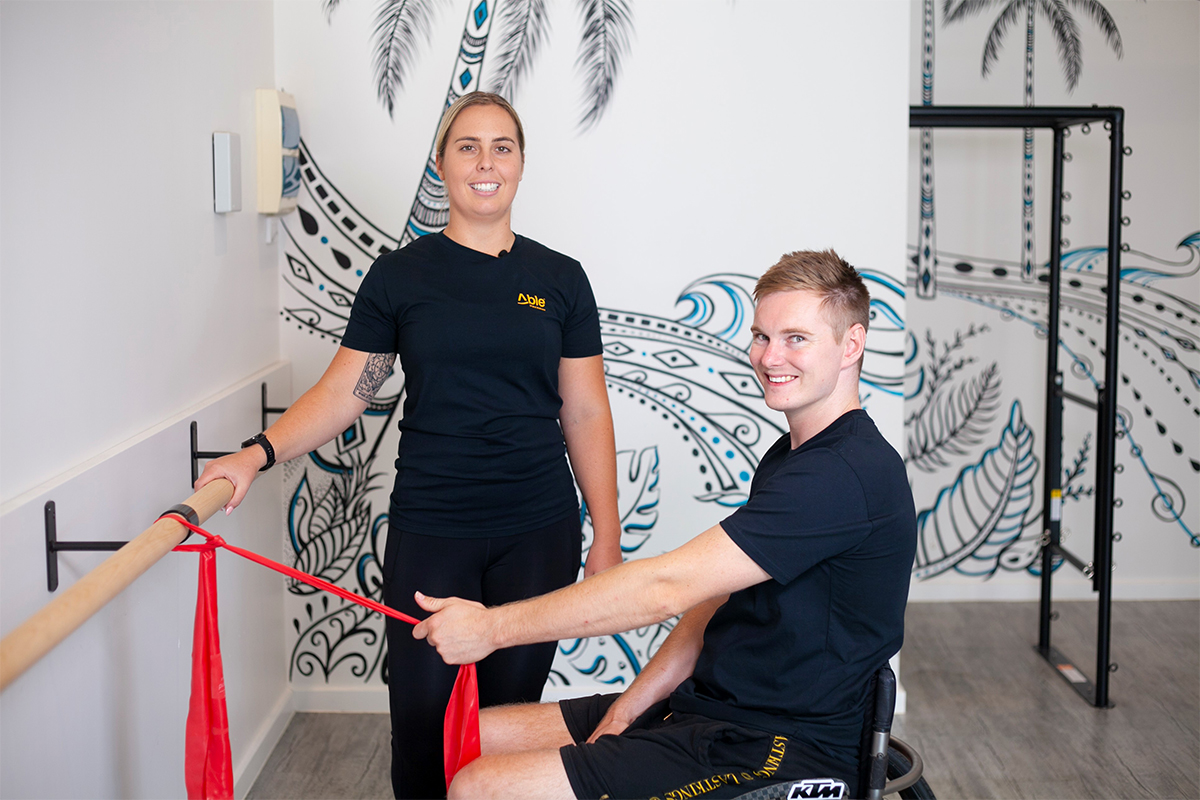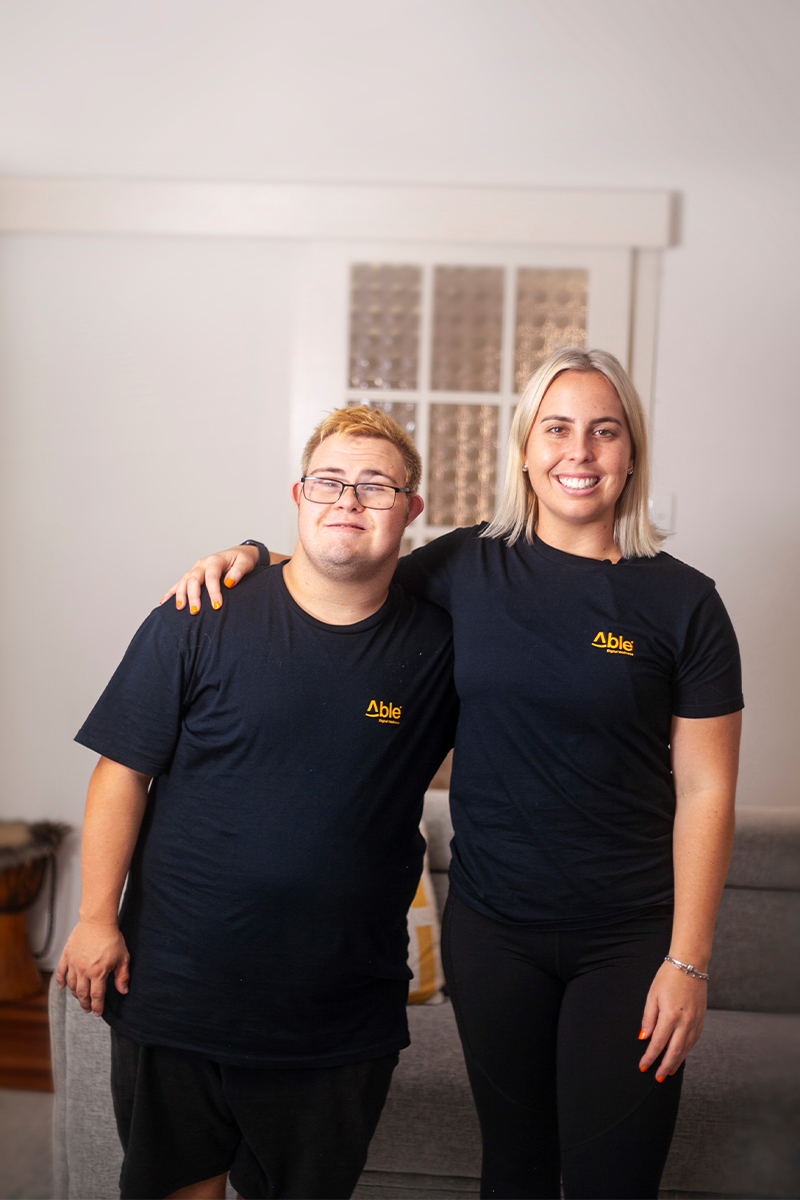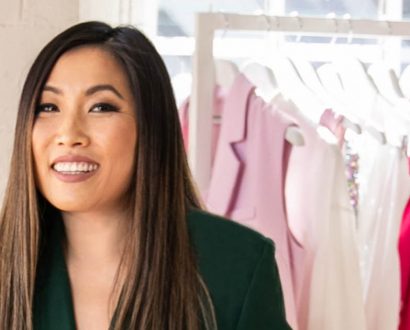Breaking bad habits and sticking to good ones is a message heard time and time again. It’s the foundation of James Clear’s New York Times bestseller Atomic Habits and the often overlooked determinant of success.
However, the ability to make good decisions for ourselves is something many of us take for granted, unless we know someone who has a disability. Growing up with his disabled nephew, Dan, meant that Scott Chapman learned firsthand some of the struggles experienced by people who fall into this category.
Living in a supported independent living environment as a young adult granted Dan newfound freedom. But what if this autonomy was bad for his health?
“He put on a significant amount of weight in a short amount of time, not completely because of COVID-19, but because in those environments, you have choice and control, which he should have,” Chapman recalls.
“Our focus is every time we get a paid member or a paid subscriber or a paid client here, we give a free membership away to somebody who doesn’t have the funding capacity to access it.” – Scott Chapman
“But his choice and control meant that he would wake up and drink ginger beer for breakfast and the support staff couldn’t say no to that.”
Instead of burying his head in the sand and channeling his energies solely into his already thriving Zambrero restaurants operation – one of the fastest-growing franchises on the Gold Coast – and consulting work, Chapman chose to step outside his comfort zone.
He and partner Shae Chapman are highly sought-after consultants who live by the motto “Don’t put all your eggs in one basket”, which explains why the couple remains the owners of Zambrero Mexican restaurants. He also ranked within Australia’s top 100 Young Entrepreneurs in 2019.

“Since the day I started to step out of the corporate world, my wife and I have always had a very strong focus toward doing things that provided a positive outcome for people,” says Chapman.
Back in 2020, during the height of the COVID-19 pandemic, Chapman spotted a gap in the market. He began collaborating with exercise physiologists, occupational therapists and universities for the creation of the exercise platform Able Digital Wellness (Able) that was tailor-made for people with a disability.
“Right at the start of the pandemic, we didn’t know what was going to happen with takeaway restaurants,” Chapman reflects. “We had restrictions in place everywhere, and we partly looked at Able and thought, ‘If we get this off the ground in a really good manner, then maybe it will help. If I start to go broke over here, it will also help with my personal cash flow to make sure we’re OK’.”
With an ambitious plan in place and a desire to improve health outcomes for people with a disability, the seeds of success were planted. Or so Chapman thought.
Although the former Media Sales Manager at Morrison Media and Southern Cross Austereo was no stranger to establishing roots in a new industry, six months into the project, problems were revealed with the product that had gone under the radar.
“If I didn’t have my nephew as the reason why I started this business, people would’ve categorically looked at us and thought, ‘You’re not even from the industry, you’re not even disabled. What are you doing here?’”
“We definitely had multiple plans within Able with the first plan being, ‘we’re going to create this digital platform and we’re going to advertise it on social media. Thousands of people are going to use their NDIS [National Disability Insurance Scheme] plan to sign up, and we’re going to save the world.’ It didn’t happen like that,” he reflects.
Pressed for cash and unsure of how to go about redesigning the product, Chapman could have easily given up if it wasn’t for the strong drive and empathy he had for a disadvantaged population.
“I challenge anyone to walk out in the street over the next two weeks and have a lookout for somebody with a cognitive disability and tell me if they’re in a healthy weight range,” he says. “And that is the reason that people with cognitive disabilities are twice as likely to die of a preventable health outcome than the average person.”
Fast forward to 2023, and Able has come a long way as a result of various iterations and a shift to targeting the caregiver or support worker. This came about after realizing that educating and assisting this group would ultimately benefit the end user.
“When we went to market to test, we found out pretty quickly that just because you have a primary carer, which might be your mom or dad beside you, and you have a cognitive disability, if I give your mom and dad our exercise program, but they know little about exercise, you’re still in the same boat,” Chapman explains.
Less is more

While networking has always played an essential role throughout his career, Chapman’s mentality has changed since his corporate days when his identity was tied to the company he worked for and its reputation.
“All of the networking that I’m doing now is designed to add value to my business and again, that end user of my business, but it needs to equally add value to whomever I’m networking with,” he emphasizes. “If you can genuinely network like that, then it’s so much easier to network less because you end up with so much more.”
Since leaving the media world behind, Chapman served as Director of child protection services company Bravehearts. Now, at the helm of his latest venture, Chapman has come to understand that networking is much less about him and more about solving a problem.
Today, while he might be networking less, he’s more strategic and quality driven with a less-is-more approach.
However, as a newcomer to the disability sector, running a startup tied to an entirely new concept was admittedly a bit of a stretch for outsiders to embrace. Thankfully, it was Chapman’s compelling personal story with his nephew that served him well.
“If I didn’t have my nephew as the reason why I started this business, people would’ve categorically looked at us and thought, ‘You’re not even from the industry, you’re not even disabled. What are you doing here?’” he admits.
Despite this, Chapman managed to bring on board Dinesh Palipana, a quadriplegic doctor and lawyer, and Elizabeth Kendall, Research Director at Hopkins Center & Menzies Health Institute. They both now serve on the company’s advisory board.
“We’ve got a great advisory board around us, and I think the next 18 months for our business is going to be really phenomenal,” he predicts.
With buy-in from these leading industry figures, Chapman was not only introduced to Griffith University and its Allied Health team, but he filled a vital skills gap and cement partnerships with Hopkins Center for Research and the Black Dog Institute.
Built-in philanthropy

While Able’s survival is largely dependent on people with a disability making use of their NDIS Plans, Chapman is adamant that money shouldn’t stand in the way of his mission.
“Our focus is every time we get a paid member or a paid subscriber or a paid client here, we give a free membership away to somebody who doesn’t have the funding capacity to access it,” he says.
This system is remarkably similar to Zambrero’s Plate 4 Plate initiative, where purchasing a meal means another meal is donated to someone in need.
“We know that every meal we donated legitimately went to somebody who needed food at that point in time,” he says. “Whether they were in Australia or Syria, our meal donation service was true to its name, Plate 4 Plate. So I don’t ever want to say that I would want to get out of Zambrero, because I know that every dollar I make there is still positively assisting somebody else somewhere.”
For Chapman, who was encouraged from a young age to care for others, operating Able as a profitable business is only part of the equation.
“It’s got high profit margins, but importantly, it can be a business that makes real systemic change across the industry,” he affirms.
Chapman’s 5 entrepreneurial tips:
- Focus on your priorities for the week ahead rather than thinking five years from the present.
- Network with the right people and envision what a positive outcome for both parties could be.
- Demonstrate empathy toward your clientele and understand this group on a deeper level in order to deliver real change.
- Discover what your “why” is and communicate this well.
- Practice patience, because rushing will prevent you from spotting aspects of the product or business that require improvement and are vital for longevity.
- Think creatively about how your business can give to people in need no matter how small the gesture.







